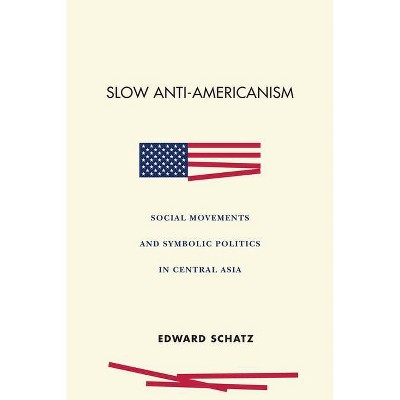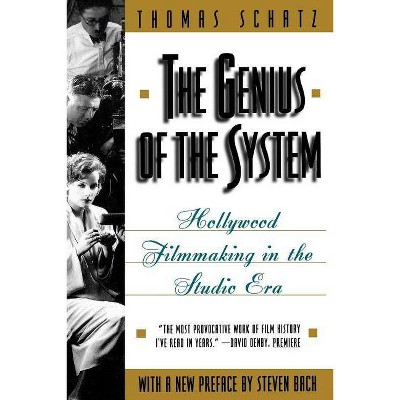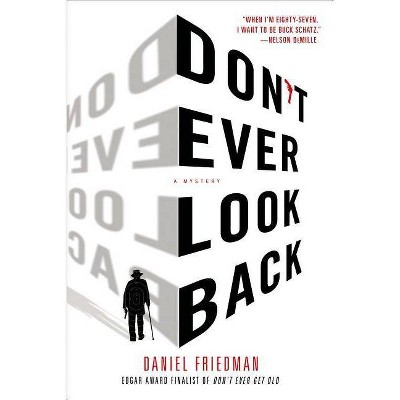Slow Anti-Americanism - by Edward Schatz (Paperback)

Similar Products
Products of same category from the store
AllProduct info
<p/><br></br><p><b> About the Book </b></p></br></br>"As the United States' global image shifted during the 1990s and 2000s, so too did anti-American dynamics. This shift in image - a deterioration, as Ed Schatz puts it - was not only watched by social mobilizers, radical Islamist leaders, and labor organizers, but integrated into a new schema used to frame the grievances of American imperialism's victims. Schatz traces the progressive deepening of anti-American sentiment in post-Soviet central Asia using the lens of symbolic politics. Drawing on extensive qualitative and quantitative data, he demonstrates how changing public attitudes can have significant sociopolitical consequences. He bypasses the direct link between public opinion and policymaking and instead focuses on the link between public opinion and popular mobilization; the development of this relationship empowers some social actors and disempowers others. This book illustrates how anti-Americanism in central Asia is best described not as a rising tide that swamps, nor as a rapidly spreading fire that engulfs, but as a gradual progression mounting slowly, but powerfully, toward a politically combustible movement"--<p/><br></br><p><b> Book Synopsis </b></p></br></br><p>Negative views of the United States abound, but we know too little about how such views affect politics. Drawing on careful research on post-Soviet Central Asia, Edward Schatz argues that anti-Americanism is best seen not as a rising tide that swamps or as a conflagration that overwhelms. Rather, "America" is a symbolic resource that resides quietly in the mundane but always has potential value for social and political mobilizers. Using a wide range of evidence and a novel analytic framework, Schatz considers how Islamist movements, human rights activists, and labor mobilizers across Central Asia avail themselves of this fact, thus changing their ability to pursue their respective agendas. By refocusing our analytic gaze away from high politics, he affords us a clearer view of the slower-moving, partially occluded, and socially embedded processes that ground how "America" becomes political. In turn, we gain a nuanced appreciation of the downstream effects of US foreign policy choices and a sober sense of the challenges posed by the politics of traveling images.</p> <p>Most treatments of anti-Americanism focus on politics in the realm of presidential elections and foreign policies. By focusing instead on symbols, Schatz lays bare how changing public attitudes shift social relations in politically significant ways, and considers how changing symbolic depictions of the United States recombine the raw material available for social mobilizers. Just like sediment traveling along waterways before reaching its final destination, the raw material that constitutes symbolic America can travel among various social groups, and can settle into place to form the basis of new social meanings. Symbolic America, Schatz shows us, matters for politics in Central Asia and beyond.</p><p/><br></br><p><b> Review Quotes </b></p></br></br><br>Whereas scholars have tended to view anti-Americanism as either a psychological or a cultural 'clash of civilizations' phenomenon, Edward Schatz looks at how negative perceptions of America conditioned the long-term success or failure of domestic political movements abroad. Turning the topic inside out on the strategic terrain of central Asia, this brilliant book heralds a paradigm shift in the study of public diplomacy. It deserves a large audience.--Alex Langstaff "<i>International Affairs</i>"<br><br>Edward Schatz looks at how negative perceptions of America conditioned the long-term success or failure of domestic political movements abroad. Turning the topic inside out on the strategic terrain of central Asia, this brilliant book heralds a paradigm shift in the study of public diplomacy. It deserves a large audience.--Alex Langstaff "<i>International Affairs</i>"<br><br>Those interested in reflecting on the recent history of America's reputation abroad and what should be done differently in the future will want to read<i>Slow Anti-Americanism</i>... It takes readers far from the headspace of the foreign policy community and into the lives of activists and ordinary people in a part of the world where the reputation of the United States has changed greatly over the last 30 years. -Laura Adams, the Oxus Society for Central Asian Affairs<br><br>Fresh, strikingly original, and with the wisdom of the long view, <i>Slow Anti-Americanism</i> compellingly shows the slow-burning complexities of anti-Americanism. Edward Schatz's careful observations offer critical guidance to scholars and policymakers about what America stands for in Central Asia and beyond.--Alexander Cooley "Columbia University"<br><br>Relying on geological metaphors and the analysis of symbolic politics, Edward Schatz offers a theoretically nuanced and empirically innovative study of anti-Americanism in Central Asia. <i>Slow Anti-Americanism</i> is a valuable addition to a literature that is, once again, of growing importance in the analysis of U.S. foreign policy and world politics.--Peter J. Katzenstein "Cornell University"<br><p/><br></br><p><b> About the Author </b></p></br></br><b>Edward Schatz</b> is Associate Professor of Political Science at the University of Toronto. His previous books include <i> Paradox of Power: The Logics of State Weakness in Eurasia</i> (2017) and <i>Political Ethnography: What Immersion Contributes to the Study of Power</i> (2009).
Price History
Price Archive shows prices from various stores, lets you see history and find the cheapest. There is no actual sale on the website. For all support, inquiry and suggestion messages communication@pricearchive.us




















